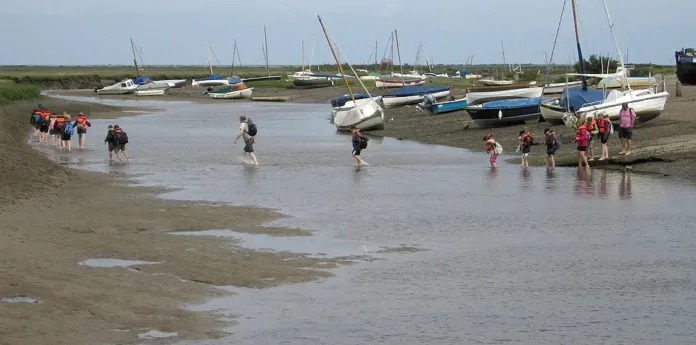New UK–France treaty allows first returns of small boat migrants to France in exchange for safe-route intake
The UK is preparing to begin detaining people who arrive across the Channel in small boats and returning some of them to France within days, after securing formal approval from the EU for a landmark deal with Emmanuel Macron’s government.
The agreement – signed last week by Home Secretary Yvette Cooper and her French counterpart, Bruno Retailleau – will, for the first time, enable the Home Office to send certain asylum seekers back across the Channel, while simultaneously accepting others directly from France through a legal, safe route.
Under the so-called “one in, one out” pilot scheme, about 50 people a week are expected to be returned during the initial phase, which will run until June 2026. Those who make the dangerous small boat crossing will be ruled ineligible for the safe route, which will prioritise nationalities deemed most at risk, subject to full documentation, security, and eligibility checks.
Home Office officials say the programme is “operationally ready”, with detentions likely to start within days. Preparations are already underway, including freeing space in immigration removal centres and equipping Border Force officers with a new operational strategy to identify those whose asylum claims will be deemed inadmissible because of their arrival method.
The scheme launches at the height of the summer crossing season, when calmer seas make the route more viable for people smugglers. On 30 July alone, 898 people arrived in the UK by small boat. Since January, the total stands at around 25,000.
Prime Minister Sir Keir Starmer hailed the move as “the product of months of grown-up diplomacy delivering real results for British people”, describing it as a direct strike at “the heart of these vile gangs’ business model”.
“The days of gimmicks and broken promises are over – we will restore order to our borders with the seriousness and competence the British people deserve,” Starmer said.
Embed from Getty ImagesYvette Cooper promised to fight off any legal challenge, saying lessons had been learned from the failed Conservative plan to deport asylum seekers to Rwanda – a scheme that was blocked in the courts.
“This is an important step towards undermining the business model of the organised crime gangs that are behind these crossings – undermining their claims that those who travel to the UK illegally can’t be returned to France,” she said.
“It is also right to make clear that – while the UK will always be ready to play its part alongside other countries in helping those fleeing persecution and conflict – this must be done in a controlled and managed legal way, not through dangerous, illegal and uncontrolled routes.”
Once a person is returned to France under the agreement, they will be permanently barred from using the safe route to enter the UK. Any returned individual who attempts to re-enter the UK illegally will be sent back to France “as a matter of priority”.
The deal had faced a potential hurdle from the European Commission, whose approval was required for France to participate. That green light was given on Monday, clearing the way for the pilot to start almost immediately.
However, the plan has faced fierce criticism from the Conservatives, who say the numbers involved are too small to make an impact. They argue that with tens of thousands arriving, the scheme’s ratio works out closer to “17 in, one out”. Shadow Home Secretary Chris Philp claimed it would “make no difference whatsoever” and blamed Labour’s decision to scrap the Rwanda policy for fuelling the rise in crossings.
Despite the political row, both the UK and France have committed to reviewing the scheme’s future once the pilot ends in mid-2026 – by which time ministers hope it will have shown it can deter dangerous Channel crossings and disrupt the people smugglers profiting from them.
